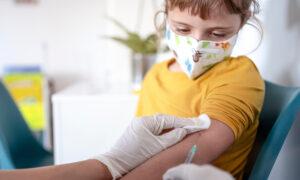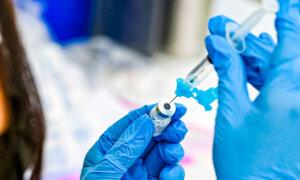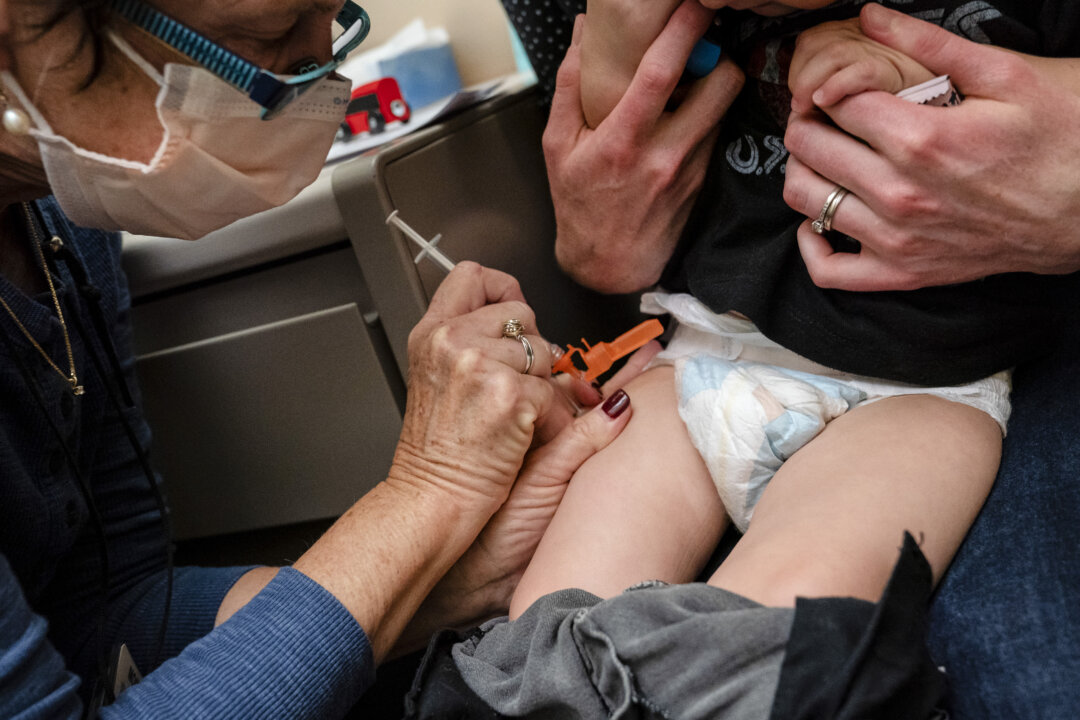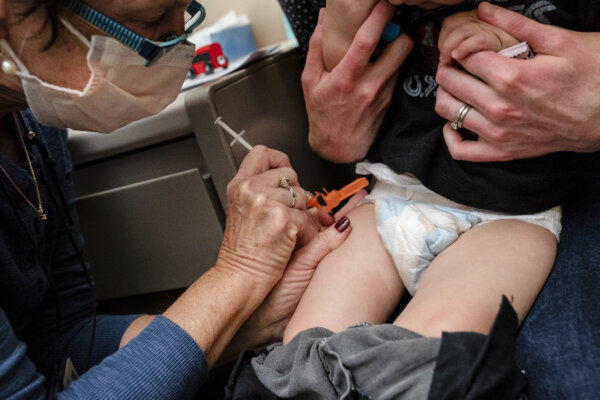Higher Risk of Seizures in Toddlers Shortly After COVID Vaccination: FDA Study
Researchers reported results in a new study.
Toddlers and other young children faced a higher risk of seizures shortly after COVID-19 vaccination, according to a new study from U.S. Food and Drug Administration (FDA) researchers.
The incidence of febrile seizures was 2.5 times higher among children within a day after receiving a Moderna shot than among the same children eight to 63 days after vaccination, the researchers said.
There was also a higher risk for febrile seizures zero to one day after receipt of a Pfizer-BioNTech dose than in the 8–63 day window following vaccination, but that elevated risk was not statistically significant.
Richard Forshee, deputy director of the FDA’s Office of Biostatistics and Pharmacovigilance, and other researchers conducted the self-controlled case series by analyzing data from commercial databases. The data came from CVS Health, Optum, and Carelon Research. The children were 2 to 5 years old.
Fever is a common side effect of the COVID-19 vaccines. Some 19 percent of children aged 2 to 3, for instance, in Pfizer’s clinical trial suffered fever after a second dose. Fever may result in some cases in seizures, health officials said.
The two-day window used in the new study ensures that the seizure cases “are more likely to be associated with vaccination rather than other causes,” the researchers said.
There were 88 febrile seizures after the Pfizer vaccination among the study population. Seven of those cases happened the day of or the day after vaccination.
There were 67 cases after the Moderna vaccination. Ten happened in the two-day window.
Seizures that happened two to seven days after vaccination were excluded from the primary analysis.
In a secondary analysis, using a longer risk interval within seven days of vaccination, researchers identified 103 febrile seizures and 135 seizures/convulsions after Pfizer vaccination, including 22 febrile seizures and 32 seizures/convulsions within seven days of a shot. The secondary analysis showed 78 febrile seizures and 106 seizures/convulsions after Moderna vaccination, including 21 febrile seizures and 28 seizures/convulsions in the longer risk interval.
No statistically significant findings showed up for that secondary analysis, or any other secondary analyses, after researchers applied adjustments to the data.
Exclusions included children who received more doses than approved. Researchers analyzed data from the Carelon database from June 2022 to February 2023, from June 2022 to March 2023 from the CVS database, and from June 2022 to May 2023 in the Optum database.
The FDA authorized new versions of vaccines from Pfizer, Moderna, and Novavax in late 2023, relying on clinical trial data from just 50 humans. Those currently available versions are not covered by the research.
The FDA funded the new study. Limitations of the research included the small number of cases, according to the researchers.
Dr. Harvey Risch, professor emeritus of epidemiology at the Yale School of Public Health, who was not involved in the research, agreed. “These small numbers are not large enough for a reliable statistical analysis, which makes the paper scientifically weak,” Dr. Risch told The Epoch Times in an email.
The corresponding author, Mr. Forshee, did not respond to a request for comment. The FDA declined to comment. Moderna and Pfizer did not return inquiries.
Despite the finding of elevated risk, the researchers claimed that “based on the current body of scientific evidence, the safety profile of the monovalent mRNA vaccines remains favorable for use in young children.”
This article has been archived for your research. The original version from Epoch Times can be found here.






